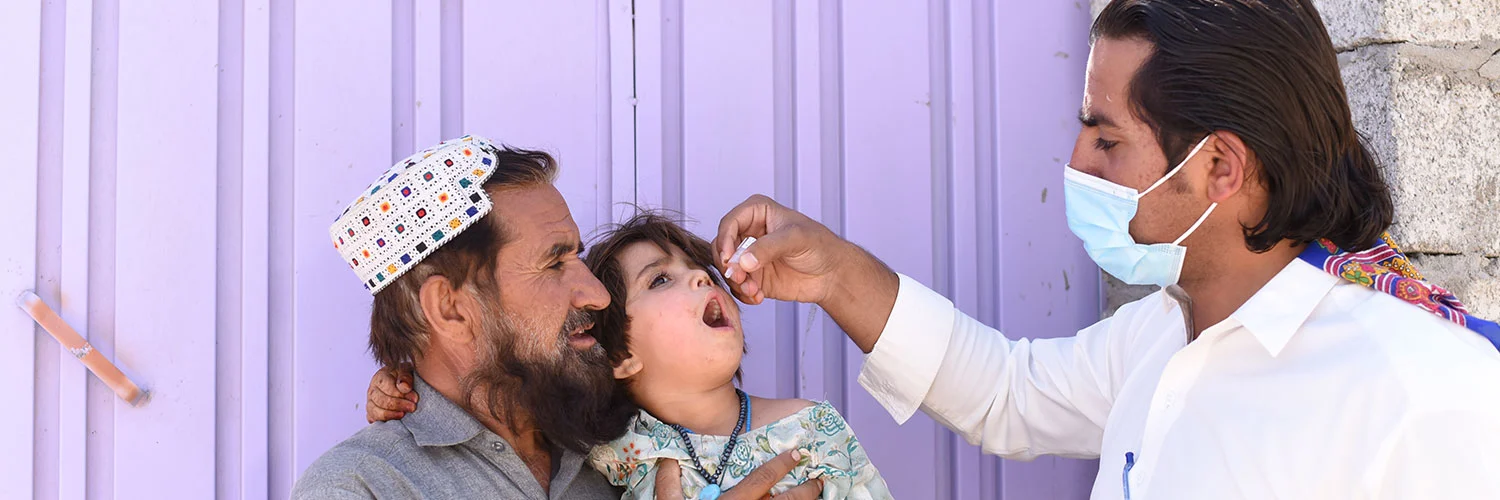ISLAMABAD, 18 May 2021: The International Monitoring Board (IMB) appreciate the progress the Pakistan Government has made in controlling the poliovirus despite the complex challenges faced by the programme. The IMB meeting recommended continuing ongoing efforts with a specific focus on evidence-based social data and investment in primary health care, nutrition and water and sanitation services.
“The Pakistan Polio Programme is optimistic about controlling polio before the end of 2022 despite the complex challenges of the COVID 19 pandemic. Recent epidemiological data indicates the declining trend of polio cases and decreased detection of viruses in sewage samples indicates the programme is on track” said Dr. Faisal Sultan, the Special Assistant to the Prime Minister on National Health Services, Regulations and Coordination in his inaugural speech at the virtual IMB meeting. However, Dr. Sultan also noted “we have been close before and lowered our guard and polio surged back, so rather than congratulate ourselves on efforts to date, we need to double our efforts and drive harder than ever if we are to truly protect Pakistan’s, and the world’s children from this devastating disease.”
Dr. Faisal Sultan also stressed the need for a coordinated whole of government approach encompassing nutrition, primary health care and water and sanitation. The meeting was also attended by the Secretary of Health, Amir Ashraf, the National Coordinator of the Polio programme Dr Shahzad Baig, and Sir Liam Donaldson, Chair of the IMB and members of the IMB, all international experts in polio eradication and public health.
The recommendations of the IMB made in the last meeting are being implemented, resulting declining trends of polo cases in the country. This is reflected by the declining polio cases and decreased detection of viruses in sewage samples
Referring to these achievements, Dr. Sultan noted “this year the programme has observed only one case of WPV1, which is considerably better than the 50 cases we had at the same point last year”.
The SPMA and Chair of the IMB applauded some of the innovative means by which the Programme has addressed community mistrust, especially in an unprecedented era of unprecedented anti-vaccine propaganda, but both also cautioned against complacency and emphasised the need for Pakistan to stay vigilant and increase all efforts to eradicate polio.
===============
Note for the Editor:
Polio is a highly infectious disease caused by poliovirus mainly affecting children under the age of five years. It invades the nervous system and can cause paralysis or even death. While there is no cure for polio, vaccination is the most effective way to protect children from this crippling disease. Each time a child under the age of five is vaccinated, their protection against the virus is increased. Repeated immunisations have protected millions of children from polio, allowing almost all countries in the world to become polio-free.
Pakistan is one of the two polio-endemic countries in the world along with its neighbour Afghanistan. They are currently facing a challenging situation in polio eradication with the upsurge of the number of polio cases.
For more information, visit our website - https://www.endpolio.com.pk
===============
For further information, please contact:
Mr. Zulfiqar Babakhel, Media Manager, NEOC, 0345-9165937
Email: This email address is being protected from spambots. You need JavaScript enabled to view it.

